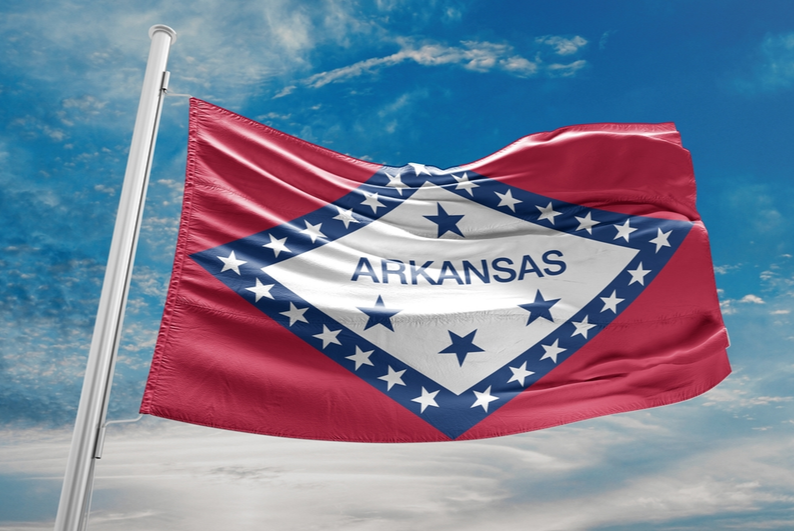Rules favor casinos
The Arkansas Racing Commission (ARC) has paved the way for online and mobile sports betting to launch in the state by the Super Bowl.
The ARC voted unanimously to green-light rules for Arkansas off-casino digital sports wagering in a lengthy Thursday meeting, with 51%, two-skin provisions in place.
Arkansas News journalist Caleb Taylor shared news of the ARC’s vote via Twitter, which gives Arkansas casinos a 51% lion’s share of net revenue when partnering with sportsbooks such as BetMGM and FanDuel.
Media source 40/29 News cited Arkansas Department of Finance and Administration spokesperson Scott Hardin as saying a state legislative committee will now review the rules at a meeting that could be held late January.
Carlton Saffa, chief market officer of Saracen Casino Resort in Pine Bluff, told the news source that if the committee green lights the rules, his casino’s sports betting app will be live in time for the Super Bowl in February.
Sportsbooks opposed to 51%
Leading operators including BallyBet, BetMGM, DraftKings, and FanDuel opposed the rules getting approved, arguing that the profit sharing condition with the state’s casinos was unreasonable. An advocacy group representing these and other sportsbooks, Bet on Arkansas, said the operators typically share between 5% to 15% with partners.
clients “can’t do business in Arkansas” with the 51% profit sharing rule in place
John Burris, a former Arkansas legislator representing national online sportsbooks, said at the ARC meeting that his clients “can’t do business in Arkansas” with the 51% profit sharing rule in place.
Saffa countered that sportsbook operators have accepted a 51% revenue share for New York online sports betting.
Sportsbook operators BetMGM and DraftKings also didn’t get their way in regard to mobile apps, or “skins.” Both asked for a minimum of four mobile skins. The ARC stuck to the two-skin rule that allows Arkansas’s three casinos to partner with just two online sportsbook operators, which gives bettors fewer mobile apps from which to choose.
Burris pointed out the potential folly, both for Arkansas bettors and the state treasury, of placing obstacles in front of the major operators. “Every dollar of sports betting revenue will pay the AR tax, no matter the platform. So to maximize tax dollars, we need to maximize participation. To maximize participation, we need the brands consumers play. Anything less keeps it underground and untaxed.”
Second-class insinuation?
The rules approved by ARC allow local casinos to create their own mobile sports wagering apps.
Saffa took exception to the national betting brand leaders calling themselves “first-class,” telling the ARC that this implied mobile platforms created by Arkansas casinos would not be at the same level. Saffa went on to tout Walmart’s global headquarters in Bentonville as an example of Arkansas’ first-class capabilities. “We can do it,” he asserted.
Arkansas voters approved retail sports betting in November 2018, allowing in-person betting at Arkansas casinos via ticket windows and kiosks. Bettors placed the state’s first sports wagers at Oaklawn in July 2019. Bettors have since wagered over $104m, creating $1.9m in state revenue.




